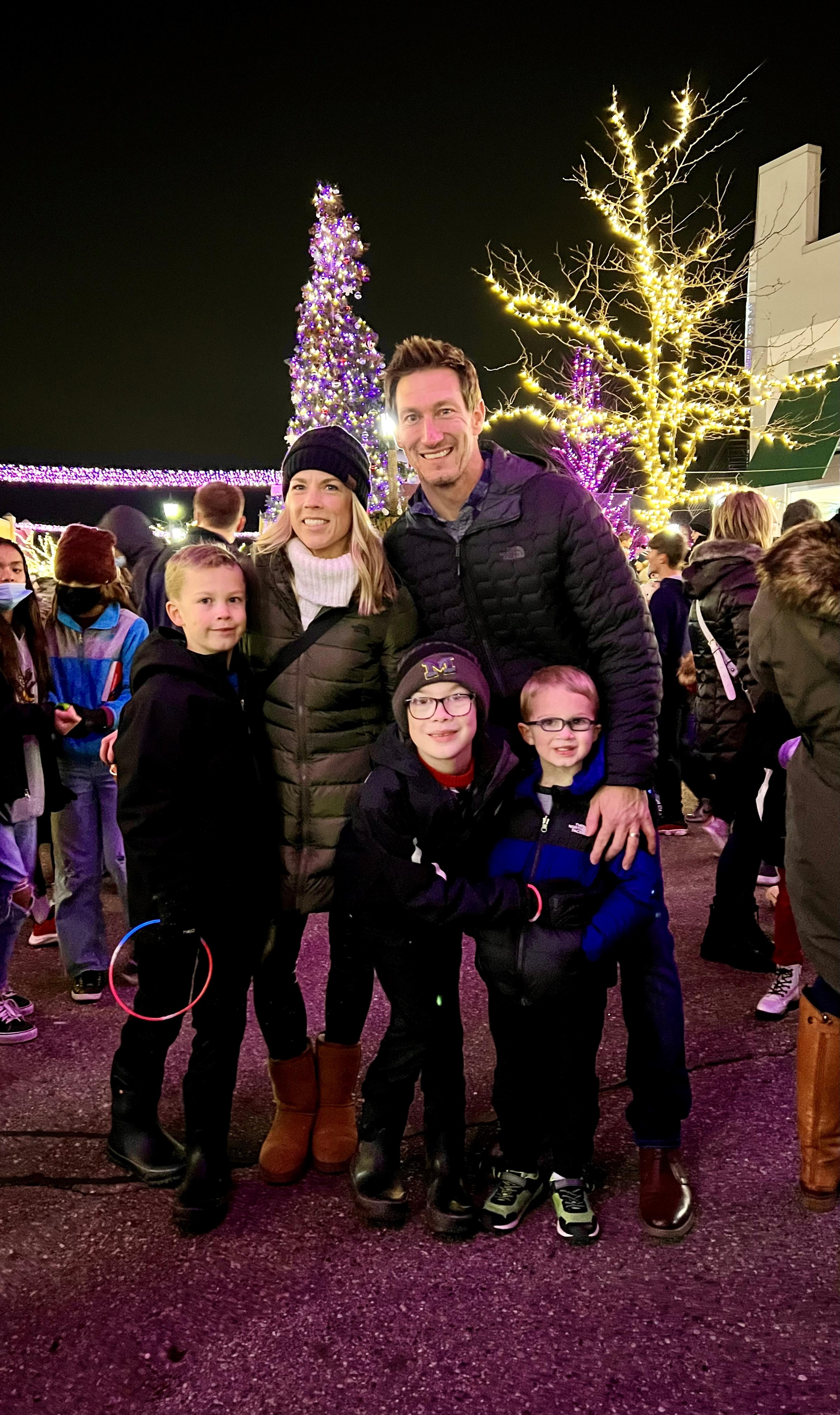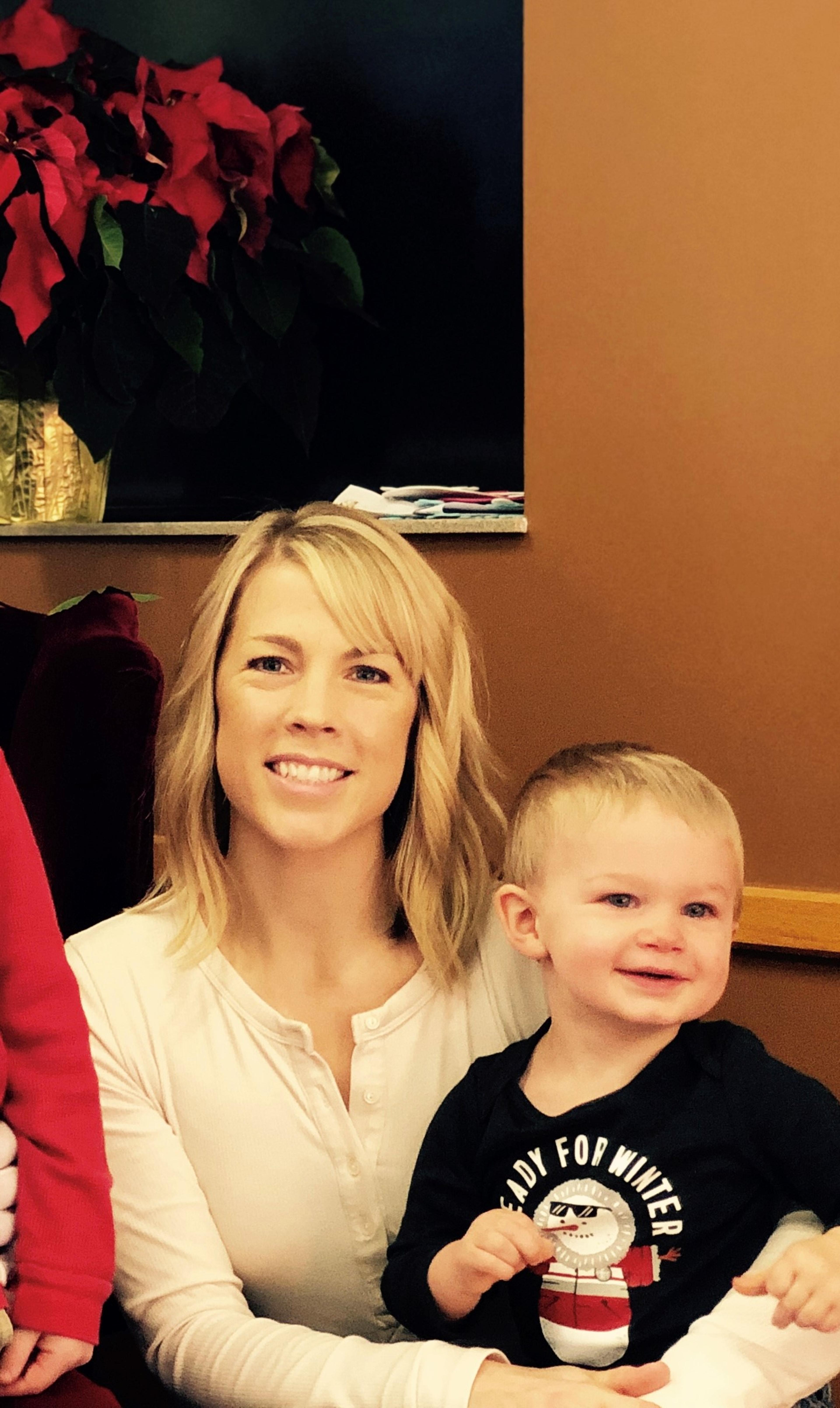Rochester Hills Cancer Survivor Discovers the Importance of Family Health History Knowledge

Jake Newby
| 5 min read
Jake Newby is a brand journalist for Blue Cross Blue Shield of Michigan.

Instead of planning for the 2018 holiday season with her family and three young kids, Rochester Hills’ 38-year-old Beth Jones remembers having invasive thoughts about making a family bucket list after being diagnosed with stage 2 colon cancer diagnosis.
“I just remember crying, thinking, ‘how, at 38, can I be going through this?'” said Jones, a Blue Cross Blue Shield of Michigan member. “I thought I was going to get a scan, be done, then go get lunch. And that’d be the end of it.”
A series of scans, genetic tests and gut-wrenching conversations with doctors began with some subtle symptoms at home for Jones many months earlier. She started to experience symptoms like constipation and bloody stool. Her gynecologist told her that a medication she was taking may have caused gastrointestinal issues (GI). But changes to her medication didn’t alleviate the symptoms. So, Jones scheduled an appointment with a GI specialist.
“Luckily going in, I knew that one grandparent on my mom’s side had cancer, another on my dad’s side had cancer and then my uncle had colon cancer at a younger age, as well,” Jones said. “When I shared that information with the GI doctor, he said I should get in for a colonoscopy.”
The colonoscopy revealed a large mass in Jones’ colon that the doctor’s scope couldn’t see past. She was eventually recommended to undergo genetic testing, which found that two of Jones’ aunts tested positive for Lynch Syndrome, a condition that increases a person’s cancer risk. The condition is associated with these symptoms, many of which aligned the medical journey Jones found herself on in 2018:
- Colon cancer before age 50
- Cancer of the inside lining of the uterus (endometrial cancer) before age 50
- A personal history of more than one type of cancer
- A family history of cancer before age 50
“It’s silly that I don’t know that prior to (the tests),” Jones said. “I wish I had known more about the genetic testing in my family earlier. Because I could have been tested earlier, my siblings, my cousins could be tested, and we could have started having colonoscopies earlier. You can’t look back and change it, but all I can do is share and encourage others to find out their family history.”

Ten days after being diagnosed with colon cancer, Jones was diagnosed with Lynch Syndrome. She said her personal reaction to Lynch Syndrome when combined with the cancer did not affect her overall health too much; if anything, it ruled out chemotherapy as a treatment method, as patients with Lynch Syndrome do not typically respond well to chemo.
Soon after the cancer diagnosis, Jones made the decision to have most of her colon removed, as well as a hysterectomy. She said she felt blessed that her CT scans revealed the cancer had not spread by the time of her colon cancer removal surgery. A surefire result of Jones’ past knowledge of her family’s history of cancer.
“I feel I’m fortunate to at least have known I had two grandparents with colon cancer and an uncle,” she reiterated. “If I didn’t know that information, I don’t know how quickly the GI doctor would have gotten me in for a colonoscopy.”
Living her ‘Beth’ life: How cancer brought changes and perspective to Jones’ life
Jones always loved her job as kindergarten teacher. The only downside to her career was the amount of time she spent away from her three kids, who were aged 7, 4, and 1, respectively, when she was diagnosed with cancer.
As she was cancer-free and recovering, Jones had the “life is too short” epiphany. She quit her job so she could stop missing key family moments and spend more precious time with her little ones. But she found a new calling soon after leaving teaching.

“When COVID hit, I realized I was happy to be home with my kids, but I had a sense of having nothing for myself, I wanted something for me,” Jones said. “I started sharing my life on Instagram and Facebook and a little bit on TikTok. I wanted to connect and maybe inspire some people to maybe live their best life too.”
Jones ventured into the digital creator space by launching a set of “Living My Beth Life” branded social media accounts. On Instagram, Jones has more than 2,600 followers. These are spaces for her to talk fashion, share funny family videos, connect with fellow workout buffs (she became a Barre instructor a couple of years ago) and perhaps mostly importantly, connect with young cancer patients.
“When I shared my first big reel about my cancer story, a widow reached out to me,” Jones said. “His wife had breast cancer and she had shared her story (on social media). Unfortunately, she lost her battle to cancer. He encouraged me to keep sharing my story with others.”

For better or worse, Jones’ cancer journey has woven its way into her identity. In a December reel posted to Facebook, she wrote “And I have to thank cancer (as strange as that sounds) for allowing me to slow down, step back, and really look at my life and what truly matters.”
As she spends more and more time with her family and continues to find her calling on social media connecting with others, she’s not taking her restored health for granted. Jones regularly meets with doctors and stays on top of preventive exams, such as colonoscopies. She’s become her own best health advocate, and she advises others to do the same.
“The most important thing is to listen to your body and know when something doesn’t feel right, something doesn’t seem right, to talk to your doctor,” Jones said. “If you don’t feel like you’re getting the right answers don’t be afraid to push it or see a different doctor. Trust that you know your body and know when something’s not right. Be your own advocate.”
More member stories:
- The Small Moments Mean More: Roseville Mom Recognizes the Beauty in Raising Child with Hypotonic Cerebral Palsy
- ‘You Can Have Fun Without Alcohol:’ Lansing Woman in Recovery Helps Others Live a Sober Lifestyle
- Michigan Woman Focusing on ‘Things That Matter’ While Continuing to Outlive Lung Cancer Prognosis
Photo credit: Beth Jones





